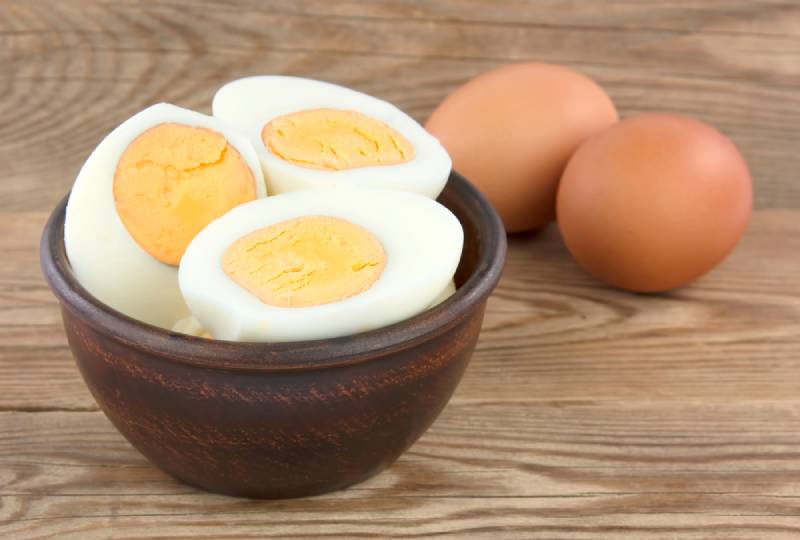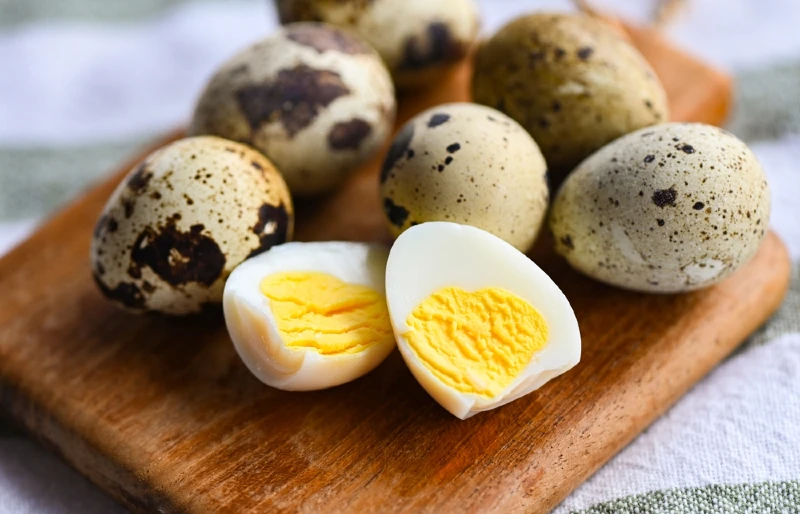Can Ferrets Eat Eggs? Vet Approved Nutrition Facts & Feeding Tips
Updated on

Click to Skip Ahead
As a responsible ferret owner, you want to do all that you can to ensure that your ferret gets the nutrition that they need for optimal health as they age. Ferrets are obligate carnivores, so you can be confident knowing that your pet is designed to eat predominantly animal matter. Most fruits and veggies are not necessary and may not be of interest to them.
However, the eggs that you cook in the morning might attract your ferret. Is it safe and healthy to give them some of those eggs? The short answer is yes, ferrets can eat eggs. However, eggs should only be offered to ferrets in moderation, and there are a few considerations to make before you start letting your pet indulge. Here’s what you should know.
Do Ferrets Eat Eggs in the Wild?
The pet ferrets that we know don’t have an exact counterpart in the wild, so instead we have to compare them to their closest relatives- the Black-footed ferret and the European polecat. These species’ primary food source is Prairie dogs and rabbits, respectively, but both have been known to eat other small mammals, birds, amphibians, and eggs.

What Are the Health Benefits of Eggs for Ferrets?
What’s great about eggs is that they provide a complete source of protein, with 6 grams available in each typical large chicken egg. Eggs also have various vitamins and minerals that ferrets need to support their immune systems and protect themselves from disease. Ferrets have short digestive tracts, so they require high amounts of fat to provide the energy they need, and eggs can supply an impressive dose of healthy fats.
Ferrets are able to synthesize vitamin D when exposed to sunlight, however many pet ferrets have limited access, so they must source it from their food. Eggs happen to be high in this nutrient, which is another good reason to give them to your ferret. That said, while eggs are relatively healthy, they should not be a prominent or regular part of a ferret’s diet.
Are There Any Risks to Consider When Feeding Eggs to Ferrets?
Eggs are beneficial additions to many ferret’s diets, but giving too many to your pet can cause digestive problems. Overconsumption can cause constipation, which is extremely uncomfortable for ferrets. This discomfort can affect your ferret’s quality of life overall and if consistent, can lead to other health problems.
It is worth noting that baby ferrets, referred to as kits, should only have mother’s milk until they’re about 4 weeks old, at which time, mushy meals can be provided. A small amount of egg can be added to these mushy meals along with ground meat, broth, and maybe even kitten formula. It’s best to consult with your veterinarian when planning a kit’s meals.

Should Ferrets Eat Raw Eggs?
In the wild, ferrets eat any eggs that they come across in their natural form, which would be raw. Therefore, we know that these animals can handle raw eggs. But are they safe for pet ferrets? Some say yes, and others say no due to the risk of problems like Salmonella exposure. According to experts at the Veterinary Nurse, raw egg yolk is fine as long as it doesn’t exceed 10% of a ferret’s diet.
Egg whites contain avidin, which is believed to bind with biotin. Once bound, the biotin becomes unavailable for a ferret to utilize. This can cause biotin deficiency, which could result in signs like hair loss. Cooking the egg whites inactivates the avidin, making the eggs less likely to cause biotin deficiency. To be on the safe side, it’s best to feed cooked eggs to your ferret. However, if they do get a raw egg yolk or two occasionally, there shouldn’t be any problems.
How Often Should Ferrets Eat Eggs?
Eggs should be occasional snacks, treats, or meal additions because they tend to cause constipation in higher amounts. One or two eggs at most should be offered to your ferret during a given week to make sure there’s plenty of room for the other nutritious foods that they require for good health and happiness.
It’s best to start slowly and work your way up to a full egg or two each week to give your ferret’s body an opportunity to properly adjust to digesting the food. Start with just a quarter or half of an egg at a time and keep an eye out for signs of constipation or other problems. If all goes well, you can add more eggs to their snack or meal plan for the next week until you’ve gotten to the two-egg mark.

How Should Eggs Be Prepared for Ferrets?
Ferrets can eat chicken, quail, duck, and other bird eggs as part of a healthy overall diet. When it comes to preparing eggs for your pet ferret, there are a few great options to consider. Ferrets don’t seem to be picky about how they are fed their eggs. You can crack a yolk into a bowl and serve it as-is occasionally. If you’re feeding eggs to your ferret regularly, cooking them is ideal.
You can cook eggs for your ferret any way that you would like. They seem to love scrambled eggs, but they won’t turn up their noses at fried eggs (without oil). They can handle hard- and soft-boiled eggs too. Experiment and see what your ferret likes the best! Keep in mind that ferrets don’t need salt, pepper, and other seasonings that we humans tend to enjoy.
In Conclusion
Ferrets can eat eggs occasionally as part of a healthy diet throughout their lives. It is important to make sure they don’t make up a predominant amount of your pet’s diet, though, as there needs to be room for the other foods that they require to ensure that all their nutritional needs are met. If you’re ever in doubt, consult with your veterinarian for expert advice and guidance.
Featured Image Credit: Karolina Grabowska, Pexels












